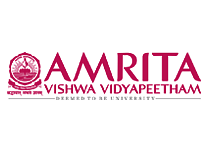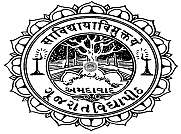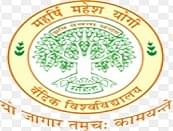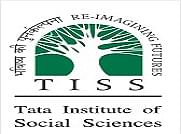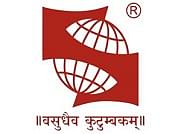Introduction:
The Diploma in ECG
(Electrocardiogram) Technology program at the Best University in Pune is designed to train students in the
specialized field of electrocardiography. Electrocardiogram (ECG) technicians
play a crucial role in healthcare settings by performing diagnostic tests to
monitor the electrical activity of the heart. This program equips students with
the knowledge and skills necessary to operate ECG equipment, perform ECG tests
accurately, and assist healthcare professionals in diagnosing cardiac
conditions.
Admission
Process:
1. Eligibility Criteria:
·
Candidates must have completed
their high school education (10+2) or equivalent from a recognized board.
·
While a science
background is not mandatory, candidates with a background in science,
particularly with subjects like Physics, Chemistry, and Biology, may be
preferred.
·
Minimum percentage
requirements may apply, typically ranging from 50% to 60%.
2. Entrance Exams:
·
Admission to the
Diploma in ECG Technology program may be based on performance in entrance exams
conducted by the university or institute.
·
Entrance exams assess
candidates' proficiency in subjects such as Physics, Chemistry, Biology, and
English.
3. Interviews and Selection Process:
·
Shortlisted candidates
may be required to appear for interviews or undergo further evaluation
processes to assess their aptitude, communication skills, and suitability for
the program.
·
Final selection is
typically based on a combination of academic performance, entrance exam scores,
and performance in interviews.
Eligibility:
1. Educational Qualifications:
·
Completion of high
school education (10+2) or equivalent from a recognized board.
·
While a science
background is not mandatory, candidates with a background in science are
preferred.
·
Minimum percentage
requirements may apply, typically ranging from 50% to 60%.
2. Basic Computer Skills:
·
Proficiency in basic
computer skills may be required as part of the curriculum, including knowledge
of Microsoft Office applications and data entry.
Career
Opportunities:
1. ECG Technician:
·
Graduates of the
Diploma in ECG Technology program can work as ECG technicians in hospitals,
clinics, diagnostic centers, and cardiology departments.
·
They operate ECG
machines, prepare patients for ECG procedures, and accurately record and
interpret ECG tracings under the supervision of cardiologists and other healthcare
professionals.
2. Cardiac Monitoring Technician:
·
ECG technicians may
also work as cardiac monitoring technicians, responsible for monitoring and
interpreting continuous cardiac telemetry, Holter monitoring, and event
monitoring.
·
They ensure accurate
recording of cardiac rhythms, identify abnormal rhythms, and notify healthcare
providers of any significant changes or irregularities.
3. Clinical Research Assistant:
·
Graduates may pursue
opportunities as clinical research assistants in cardiology research studies
and clinical trials.
·
They assist in data
collection, participant recruitment, protocol implementation, and data
management under the guidance of principal investigators and research
coordinators.
4. Healthcare Administration Roles:
·
ECG technicians with
experience and additional qualifications may transition into healthcare
administration roles such as departmental supervisors, quality assurance
coordinators, or healthcare administrators.
·
They oversee ECG
departments, ensure compliance with regulatory standards, and contribute to the
efficient operation of healthcare facilities.
Registration
Process:
1. Application Submission:
·
Obtain the application
form for the Diploma in ECG Technology program from the university's admissions
office or website.
·
Fill out the application
form accurately and completely, providing all required information.
2. Document Submission:
·
Gather the necessary
documents, including:
·
High school
transcripts or equivalent educational certificates.
·
Identification proof
(such as Aadhar card, passport, or driver's license).
·
Passport-sized
photographs.
·
Any additional
documents specified by the university.
3. Application Fee Payment:
·
Pay the application
fee as the university of puna.
·
The fee payment method
and deadline will be mentioned in the application form or information brochure.
4. Submission of Application:
·
Submit the completed
application form along with the required documents and proof of fee payment to
the university's admissions office.
·
Ensure that the
application is submitted before the specified deadline to be considered for
admission.
5. Admission Confirmation:
·
After the submission
of applications, the university will review the applications and shortlist
candidates based on eligibility criteria and merit.
·
Shortlisted candidates
may be called for further evaluation, such as entrance exams or interviews.
6. Offer of Admission:
·
Successful candidates
will receive an offer of admission from the Best university of puna.
·
The offer letter will
include details such as the program start date, tuition fees, and registration
process.
7. Registration and Enrollment:
·
Upon receiving the
offer of admission, candidates need to complete the registration and enrollment
process as per the instructions provided by the university.
·
This may involve
payment of tuition fees, submission of additional documents, and attending
orientation sessions.
Fee Structure:
The
fee structure for the Diploma in ECG Technology program at the Top
University in Pune may vary depending on factors such as the university's
policies, infrastructure, and facilities provided. Here's a general overview:
·
Tuition Fees:
·
The
tuition fees for the entire duration of the program typically range from INR
XXXXX to INR XXXXX.
·
This
fee covers the cost of academic instruction, laboratory facilities, clinical
training, and other educational resources.
·
Additional Fees:
·
Additional
charges may include registration fees, examination fees, laboratory fees, and
study materials.
·
Clinical
internship fees, if applicable, may also be included in the overall fee
structure.
·
Financial Assistance:
·
The
University in Pune may offer scholarships, grants, or financial aid to eligible
students based on merit, financial need, or other criteria.
·
Students
are encouraged to explore available options for financial assistance to support
their education.
The
Diploma in ECG Technology program at the Affordable University in Pune offers a valuable
opportunity for students to gain specialized training in electrocardiography
and pursue rewarding careers in healthcare. With a strong emphasis on practical
skills, clinical training, and professional development, graduates are
well-prepared to meet the growing demand for ECG technicians in healthcare
settings. The admission process ensures the selection of candidates with the
necessary academic background and aptitude for the field. The fee structure is
designed to make the program accessible to students from diverse backgrounds,
with options for financial assistance available. Aspiring ECG technicians in
Pune can pursue this program to embark on a fulfilling career path in cardiac
diagnostics and patient care.
Syllabus:
1. Basic Anatomy and Physiology:
·
Introduction to the
structure and function of the cardiovascular system.
·
Study of the heart's
anatomy, including its chambers, valves, and conduction system.
·
Overview of blood
vessels and circulation.
2. Electrocardiography Fundamentals:
·
Principles of
electrocardiography and the generation of electrical impulses in the heart.
·
Understanding ECG
waveform components, including P waves, QRS complexes, T waves, and intervals.
·
Electrode placement
and lead systems for standard ECG recordings.
3. ECG Equipment and Technology:
·
Familiarization with
different types of ECG machines and monitoring devices.
·
Operation and
maintenance of ECG equipment.
·
Troubleshooting common
technical issues encountered during ECG recordings.
4. ECG Interpretation:
·
Techniques for
analyzing and interpreting ECG tracings.
·
Identification of
normal and abnormal ECG patterns.
·
Recognition of common
arrhythmias, conduction abnormalities, and myocardial infarction patterns.
5. Specialized ECG Procedures:
·
Stress testing:
Principles, protocols, and indications for exercise stress testing and
pharmacological stress testing.
·
Holter monitoring:
Application, preparation, and analysis of 24-hour ambulatory ECG monitoring.
·
Event monitoring:
Utilization of event recorders for capturing and documenting cardiac events.
6. Clinical Applications and Case Studies:
·
Application of ECG
technology in clinical settings, including cardiology departments, emergency
rooms, and outpatient clinics.
·
Review of case studies
illustrating the use of ECG in diagnosing and managing cardiovascular
conditions.
·
Hands-on practice in
ECG interpretation and report writing.
7. Patient Care and Communication:
·
Patient interaction
and communication skills for ECG procedures.
·
Providing emotional
support to patients undergoing ECG testing.
·
Ensuring patient
safety and comfort during ECG recordings.





